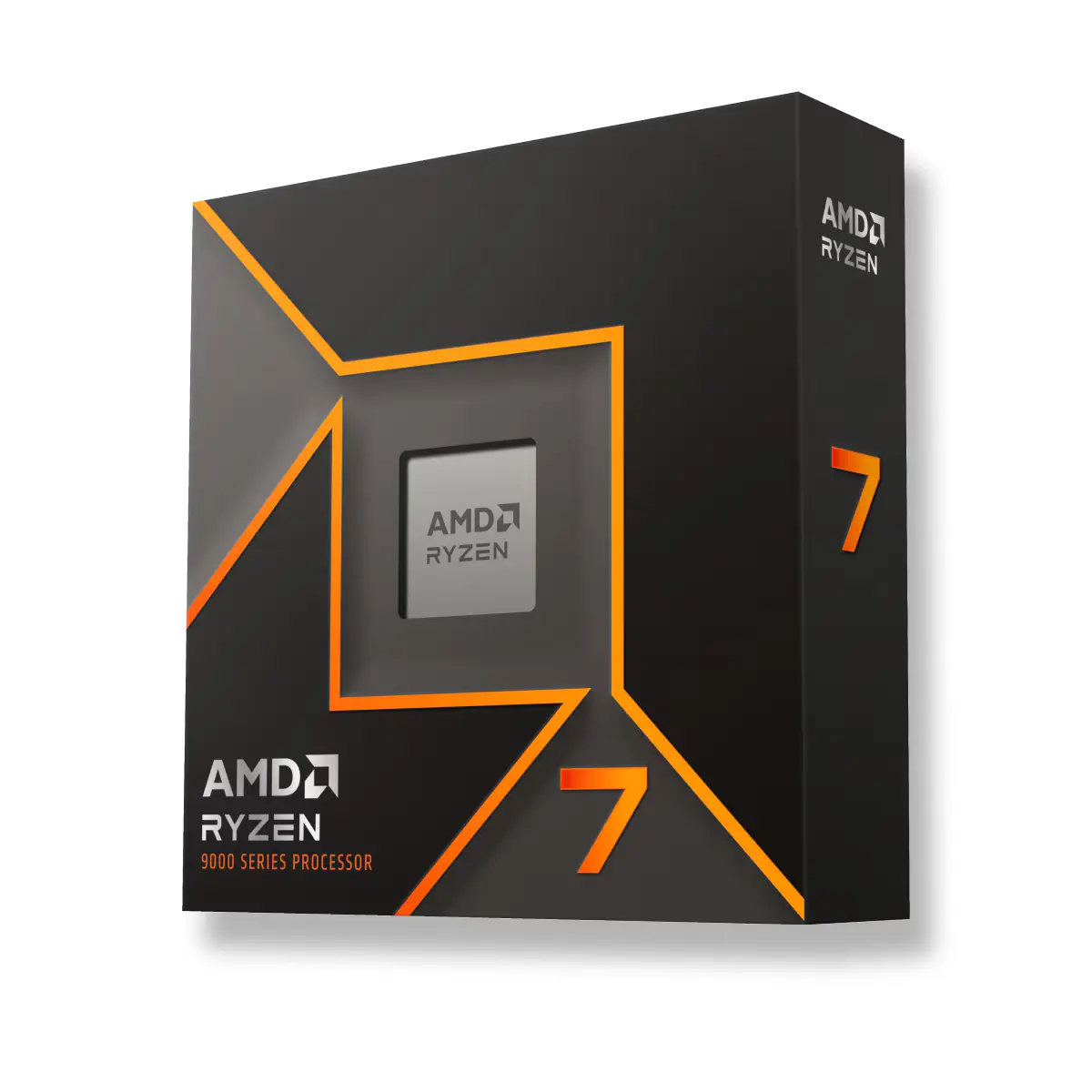The AMD Ryzen 7 9700X is the latest addition to AMD’s processor lineup, aiming to address the heat and power consumption concerns that plagued its predecessors in the AMD Ryzen 7000 series. With a focus on efficiency and manageable temperatures, this new chip offers a balanced approach to performance, making it a solid choice for those looking to build or upgrade their PCs without dealing with excessive heat or power requirements.
Addressing the Issues of the Past
The Ryzen 7 9700X follows in the footsteps of the Ryzen 7000 series, which, while powerful, was criticized for its high out-of-the-box temperatures and power consumption. This time around, AMD has refined its approach, dialing in the performance to ensure that the chip is more power-limited than thermal-limited. This results in less raw performance gain than previous generations, but it also means the 9700X runs cooler, leaving more room for overclocking if desired.
Specs and Architecture of AMD Ryzen 7 9700X
Built on the new Zen 5 architecture, the Ryzen 7 9700X features 8 cores and 16 threads, with a 40MB cache—an increase from the 32MB found in the Ryzen 7 7700X. The chip’s max turbo boost reaches 5.5GHz, a slight increase from the 5.4GHz of its predecessor. Thanks to the architectural improvements, the 9700X delivers more performance per clock cycle, making it more efficient even with a marginal increase in clock speed.
One of the most significant changes is the reduction in power consumption. The Ryzen 7 9700X operates with a base TDP of 65W and a hard limit of 88W, significantly lower than the 7700X, which could draw up to 142W. This lower TDP not only results in cooler operation but also makes the 9700X less demanding on cooling solutions and power supplies, making it an ideal choice for users with smaller or more budget-conscious builds.
Performance Analysis of AMD Ryzen 7 9700X
When it comes to performance, the Ryzen 7 9700X shows modest improvements over its predecessor. In single-core tasks, the 9700X outperforms the 7700X by around 11%, thanks to the Zen 5 architecture’s efficiency gains. In multi-core workloads, the improvement is less pronounced, hovering around 2-3%. These gains are accompanied by significantly lower temperatures, making the 9700X a more sustainable and practical choice for everyday use.
In benchmark tests like Cinebench R23, the Ryzen 7 9700X scores 19,493 points in multi-core and 2,204 points in single-core, reflecting a 1% and 11% improvement, respectively, over the 7700X. In gaming, the results are mixed; for instance, in Cyberpunk 2077, the 9700X actually performs slightly worse than its predecessor at 1080p on Ultra settings, likely due to its power limitations.
A Practical and Economical Choice
The Ryzen 7 9700X may not deliver groundbreaking performance improvements, but its efficiency and cooler operation make it a standout in AMD’s lineup. For users who prioritize stability, lower power consumption, and the potential for overclocking, the 9700X is an excellent choice. Its ability to perform well while consuming less power means it can save you money on energy bills over time and reduce the need for expensive cooling solutions.
Moreover, the chip’s unlocked nature means that users can push it further if they desire, potentially unlocking the generational improvements that the architecture promises. For those looking to build a PC that balances performance with practicality, the AMD Ryzen 7 9700X is a processor worth considering.
































































